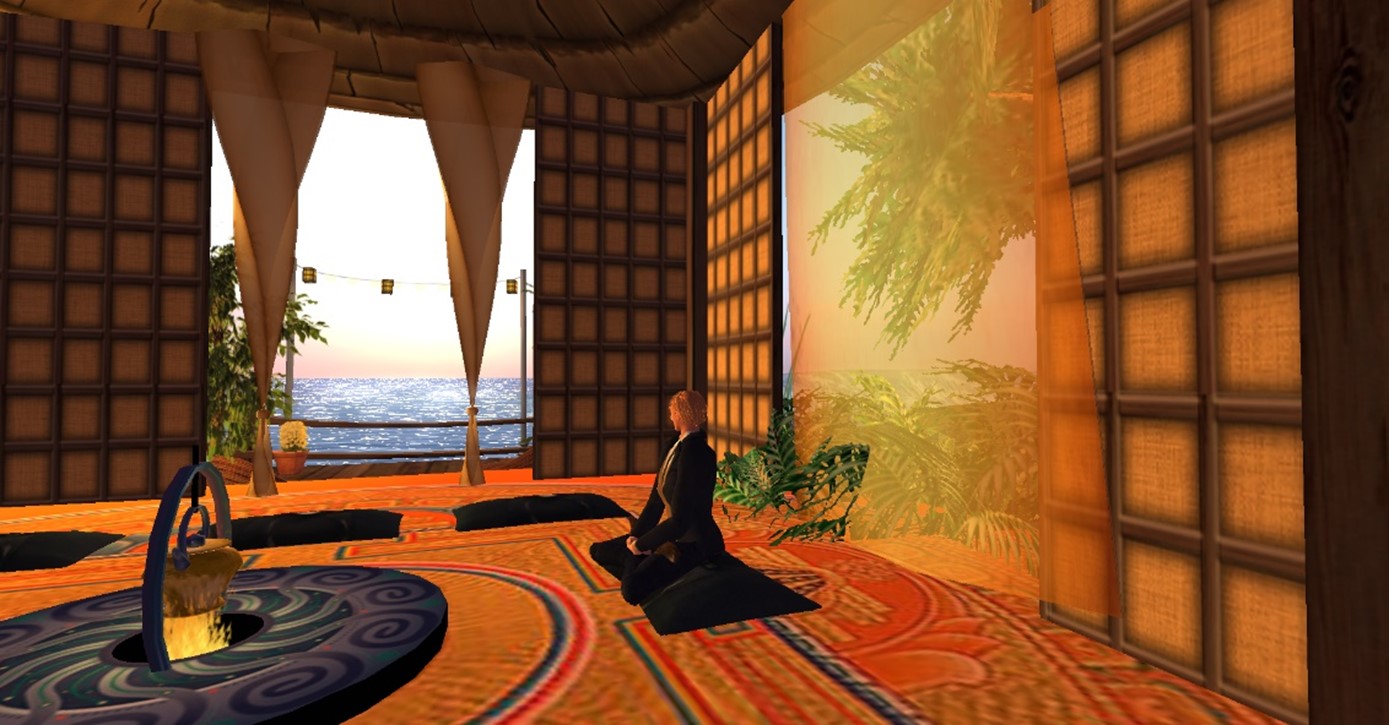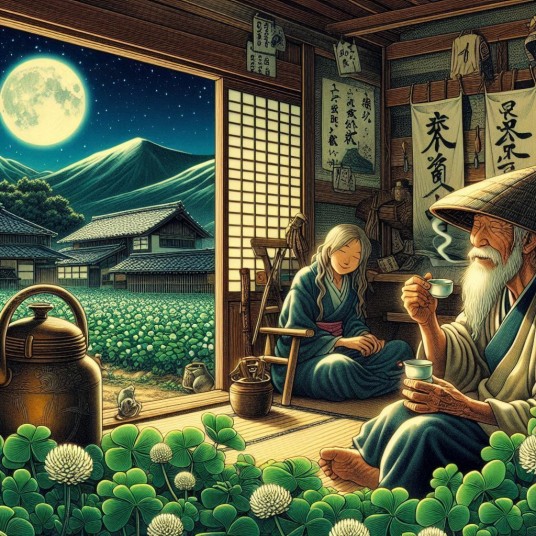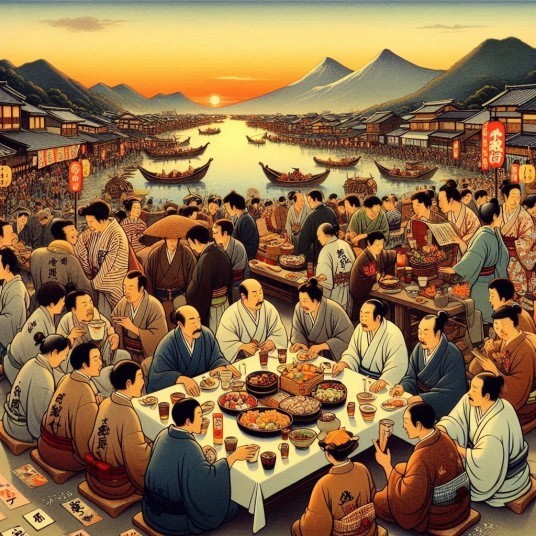
AI-generated World of Haiku

(At a hut of Caro within the Second Life, a prototype of the Metaverse)
Haiku Kozo (Haiku Monk) is a member of the Second Life (a prototype of
the Metaverse recently argued about actively). Under the avatar name "Ichiro
Dufaux" he attended many meetings within this virtual world, getting
acquaintance with many unique people and learning much about the rapidly
changing world. Caro was one of those Second Life friends. This snapshot
of Haiku Monk during meditation was taken at her fancy hut.
Monk often came to this hybrid Japanese-Chinese style hut and spent a time
of meditation. One day, he found himself beginning to pay attention to
Haiku (three-line unrhymed poem with 17 syllables). It seemed that the
atmosphere created by this hut cultivated his Haiku mind. Among others,
he carefully read the "Oku No Hosomichi (The Narrow Road to Oku)"
written by Matsuo Basho (1644-1694) with the aid of the English version
translated by Donald Keene (1922-2019).
The leitmotif of "Oku No Hosomichi" is travel. According to Basho,
time comes and goes like a traveller. There may be diverse types of travel,
ranging from sweet honeymoons and round-the-world cruises by rich couples
to the escape journeys fleeing from chasers/oppressors (e.g., Jews chased
by Nazis, Ukrainians forced to leave the homeland in the face of Russian
attacks, and so on). The travel undertaken by Basho and recorded in this
book was probably a kind of journey prompted by the awareness of the approaching
end of one's life and the desire to summarize one's life, through dissolving
the emotions, feelings, thoughts, views, experiences and activities of
the past into a ceaseless flow of time embodied as a traveller. Basho died
5 years after this travel.
Donald Keene translated this masterpiece skillfully. His interpretation
and memos based on extensive knowledge and deep understanding of the Japanese
culture and history are quite helpful to readers, even to those Japanese
readers having forgotten the old form of Japanese they learned at high
school or having insfficient knowledge about past episodes related to Haiku
or Tanka (another form of traditional Japanese poem). His contributionto global acceptance of the Basho's artistic world cannot be underestimated.
Haiku Monk, however, cannot agree with the Keene's translation at one point.
His translation sometimes uses interjections and exclamation marks. This
does not seem to be compatible with the essential nature of Haiku. According
to Monk's view, Haiku attempts to create something deserving to be exclaimed
through combining plain/ordinary words. Attaching importance to this basic
stance, Haiku Monk has attempted to translate each piece of Haiku contained
in Oku No Hosomichi into English, referring to the memos given by Donald
Keene and borrowing some expressions from his translation, while avoiding
the use of interjections and exclamation marks.
English is not the mother language for Haiku Monk. You may find some (or
many) strange or unacceptable expressions. Please feel free to inform FKPress@pro.email.ne.jp of such expressions. Monk will modify the relevant translation if deemed
appropriate. Your proposal of a better or alternative expression will also
be welcomed. Let's create and enjoy our own world of Haiku together.
*******
文月や六日も常の夜には似ず
The night sky of July
Is unique even on the sixth day
Just before the Tanabata Day.

一家に遊女もねたり萩と月
I spend a night
Under the same roof with prostitutes
Enjoying the moon and clover.

象潟や料理何くふ神祭
曾良
Kisakata during a feast
Interested in knowing the dishes
People eat in honor of the God.
By Sora

波の間や小貝にまじる萩の塵
Coming ashore with waves
Not confined to little shells
There are bits of clover blooms, too.

Full version available as Amazon E-book
→ German version